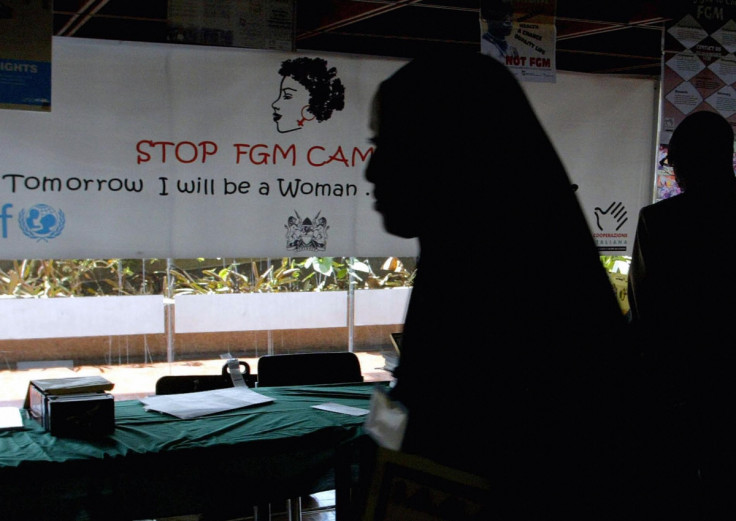Female Genital Mutilation: 'FGM education saves girls from a lifetime of pain and despair'

Female genital mutilation is even more widespread than we originally thought. At least 200 million women and girls alive today have undergone FGM globally, according to new Unicef figures released this week, with a case of FGM reported in England every 109 minutes.
Despite anti-FGM campaigns making headway into ending the illegal practice, the ritual cutting of girls is still taking place in Britain. A lack of compulsory education on FGM in schools is a downfall in the fight, which is one of the key reasons why thousands of girls continue to be cut in the UK every year.
Hibo Wardere was subjected to FGM as a child in her native Somalia. With first-hand experience of the dire consequences, she campaigns to end the practice and teaches about the risks and implications of FGM in schools across east London.
"I'm working in every school in Waltham Forest borough and most of the students still don't know FGM is taking place in their own communities. When they find out about it they are shocked to the core," Wardere says. "A girl does not know she is going to be cut until it happens, nobody is going to give her that information."
"FGM is still going on because most of the girls don't know what is going on," she says. "This is why the awful practice continues, because we are not giving girls the precious right to information because it is still not mandatory to educate about FGM."
Most of the students still don't know FGM is taking place in their own communities. When they find out about it they are shocked to the core
Education not only informs girls about their rights, but also helps them resist the pressure to be cut. It not only has an impact on the children, but also on parents and whether they decide to have their daughters cut.
"Children are not only being educated themselves, but they are going back home and having difficult conversations with their parents," she says. "I was on a bus the other day and this woman recognised me because I taught her daughter about FGM. She was screaming at me that I told her daughter FGM was illegal and that there are complications with FGM and giving birth can be dangerous.
"But I wasn't interested in her anger – I believe whatever this woman was planning for her daughter had gone out of the window because her child had knowledge."
"For me, education means two things," Wardere says. "It will encourage girls to say I need help – to come forward if they have gone through FGM – but it also means she has all the information to say no."
Although steps are being taken to improve education about FGM in schools, the integration of schools into the campaign to end FGM has been slow. Former education secretary Michael Gove only issued guidance about FGM to head teachers in 2014, after a campaign by teenage activist Fahma Mohamed. And education on FGM is still not mandatory in a school's curriculum. It is left to the discretion of the head teacher.
Education is also only an effective weapon if teachers are equipped with the knowledge required to educate children about the practice.
Nimco Ali was cut as a seven-year-old while on holiday in Djibouti, on the Horn of Africa. She set up the Daughters of Eve charity which works to protect women from FGM. She believes FGM should be part of mandatory sexual and relationships education classes in schools.
"FGM is a brutal practice, but it is also a very simple one to end," she said. "If you stop one woman having FGM done to her then you break that link and prevent is being done to the next generation.
"I came from a family that was 100% FGM and that has gone down to zero in a generation. It is something that can be ended. We are finally shaking the taboo of FGM, but we have to be vigilant and cannot be complacent."
Wardere says that teaching both girls and boys about FGM is essential, so both parents understand the risks of putting their daughters through the practice. One boy she taught had no idea about FGM or what it was, but was horrified when he found out.
"He was so angry that any girl could go through this, asking why we are robbing her of her happiness. He wanted to join the anti-FGM campaign and get involved," Wardere says. "Education makes a massive difference. Education can save girls from a lifetime of pain and despair."
Hibo Wardere's book, Cut: FGM in Britain Today, will be released in April 2016. The International Day of Zero Tolerance to Female Genital Mutilation is observed on 6 February.
© Copyright IBTimes 2025. All rights reserved.






















